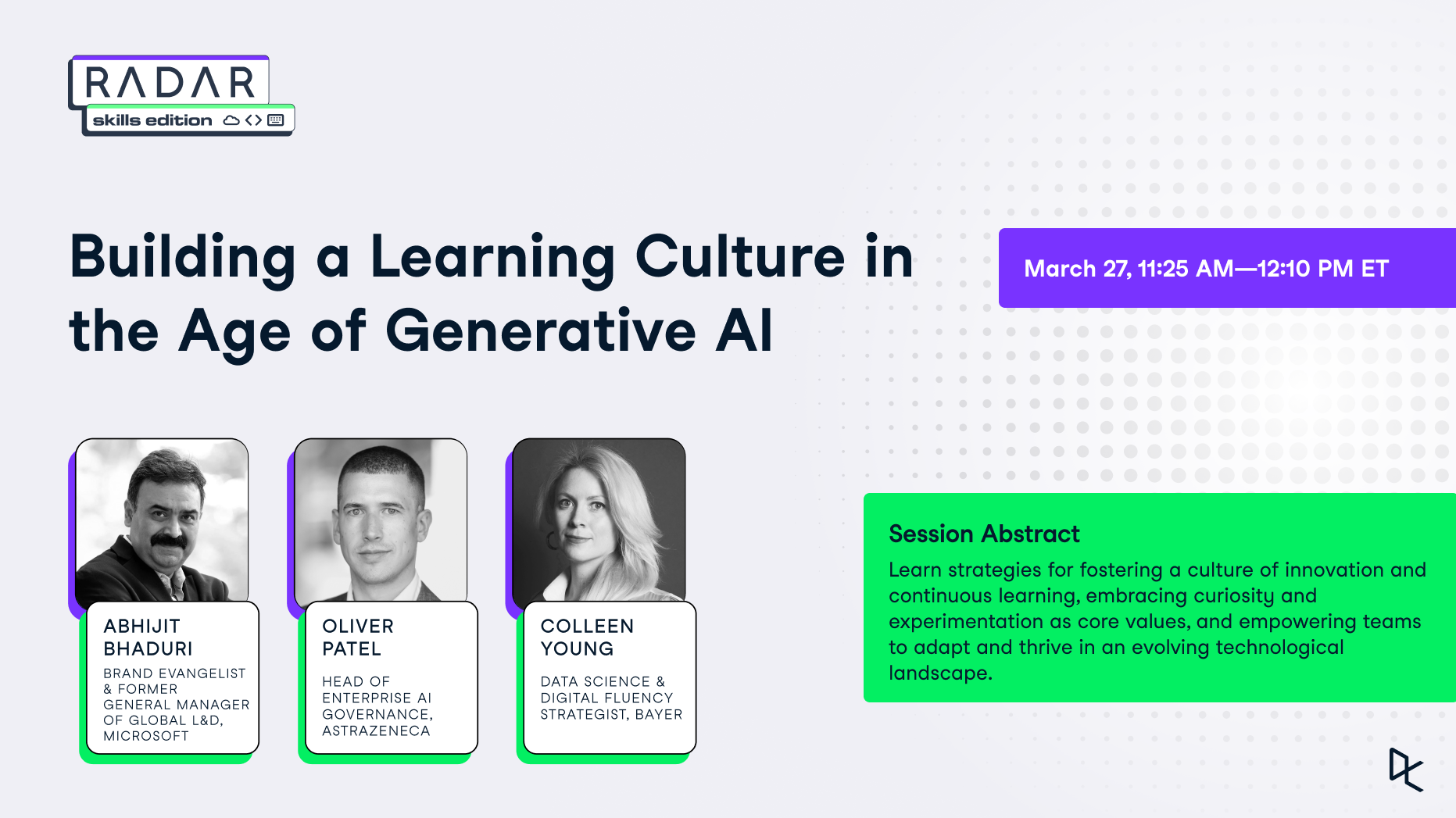Speakers
Training 2 or more people?
Get your team access to the full DataCamp library, with centralized reporting, assignments, projects and moreBuilding a Learning Culture in the Age of Generative AI
March 2025
Related
webinar
How Generative AI is Shaping Higher Education
Join us for a deep dive into the evolving academic landscape and gain insights into the opportunities and roadblocks ahead in AI-powered learning.webinar
Revolutionizing Learning: Exploring the Future of Upskilling with AI
Join us as the panel of AI and education experts discuss how to work with generative AI to upskill employees and improve corporate training programs.webinar
AI Literacy at Scale: Building a Future-Ready Workforce
Industry experts explore strategies for scaling AI literacy across diverse teams, bridging the gap between technical expertise and business understanding.webinar
Driving AI Literacy in Organizations
Gain insight into the growing importance of AI literacy and its role in driving success for modern organizations.webinar
AI In The Enterprise: Developing AI Talent
Damien Herrick, Ita Petrika-Lindroos, and Thomas Bodenski discuss strategies for developing AI talent. Learn which AI skills and roles are in demand, how to attract the right talent, and how to build AI literacy across your organization.webinar


